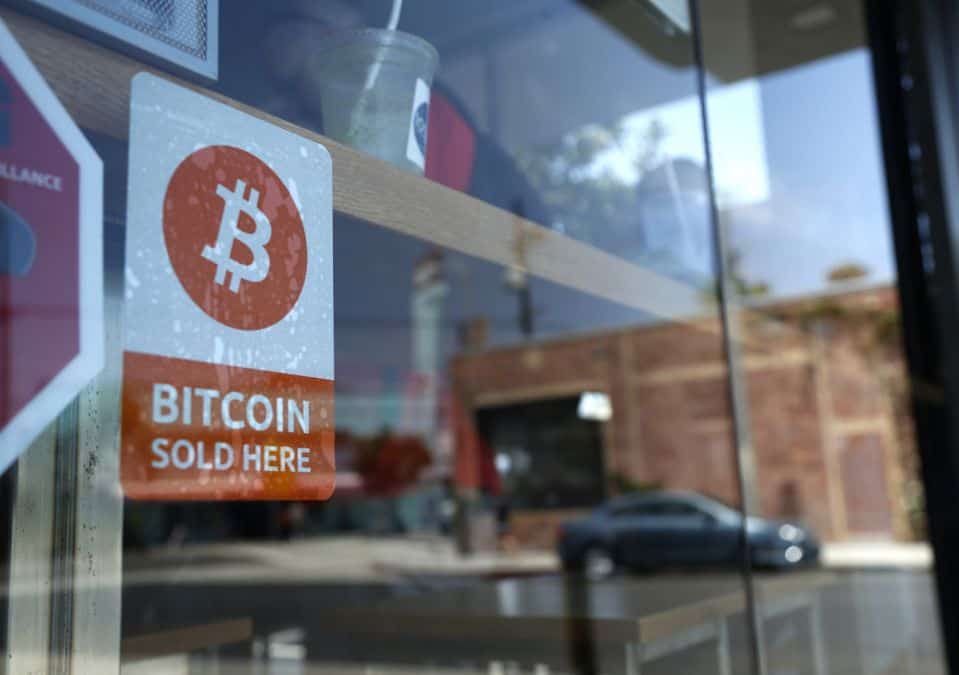The price of bitcoin hit a new all-time-high on Nov. 30, driven by institutional buying and other factors that have accelerated in 2020.
Bitcoin’s previous peak was in mid-December 2017, almost exactly three years ago. But different bitcoin exchanges and data sites vary on what that 2017 peak actually was: Bloomberg, using terminal data, pegs it at $19,511; CoinDesk, the bitcoin news site, lists it at $19,783; CoinMarketCap, the data partner Yahoo Finance uses for our cryptocurrency charts, says $20,089, while the crypto exchange BitMEX says $20,093, the highest range of all-time-high estimates. (The reason for the range is that many exchanges give a blended average of market prices from multiple exchanges.) Bitcoin topped $19,800 on Monday morning, a new record based on most data sources, but only once it hits $20,100 will all sites likely agree on a definitive new high.
As of Monday, bitcoin is up 174% in 2020.
After crashing 25% in the second week of March, the top cryptocurrency began soaring amid the COVID-19 pandemic, helped by its scarcity (bitcoin’s supply will be capped at 21 million coins) in contrast with central government monetary easing. The initial uncertainty of the U.S. presidential election result also helped bitcoin, which is seen as a hedge against macro uncertainty, and Joe Biden’s official win helped further, as he will likely deal with a Republican Senate.
But the biggest influencers on bitcoin’s 2020 ride have been two groups: Wall Street firms warming to bitcoin, and two major consumer-facing payments companies, PayPal and Square, publicly embracing it.
The evidence of Wall Street’s growing interest is clear from the gains of Grayscale Investments, the largest crypto investment firm, which topped $10 billion in assets in the Q3. (Grayscale is owned by Barry Silbert’s Digital Currency Group, the largest investor in cryptocurrency startups.)
Grayscale’s Bitcoin Investment Trust (GBTC), a publicly traded fund pegged to the price of bitcoin, was cited this week by strategists at JP Morgan as a leading indicator of institutional sentiment. “A failure by the Grayscale Bitcoin Trust to receive additional inflows over the coming weeks,” JPM strategists wrote in a new note, “would cast doubt to the idea that institutional investors such as family offices have embarked on a trend of embracing bitcoin as digital gold replacing traditional gold as a long-term investment.”
In Q2 of this year, more than a dozen well-known Wall Street firms disclosed with the SEC new investments in GBTC, including ARK Invest and Boston Private Wealth. Buying or selling by big firms can cause particularly large price swings with bitcoin because a small number of whales own a large majority of the bitcoin in circulation.
Meanwhile, JPMorgan launched JPM Coin last year, an internal digital token for use by the bank’s institutional clients. The token is overseen by the bank’s Onyx unit, and Onyx CEO Umar Farooq wrote in a blog post, “We have always believed in the potential of blockchain technology, and we are supportive of cryptocurrencies as long as they are properly controlled and regulated.” More recently, JPM began allowing customer transfers in and out of Coinbase and Gemini, two U.S. crypto exchange sites. All of this has happened despite CEO Jamie Dimon reiterating this month that bitcoin is “just not my cup of tea,” though he added, “We will always support blockchain technology.”
In contrast to Dimon’s rhetoric, a handful of influential Wall Street investors have made waves this year with comments about bitcoin as a good investment. In May, hedge fund titan Paul Tudor Jones said he has put nearly 2% of his portfolio into bitcoin. He called it a “great speculation.” This month, billionaire investor Stan Druckenmiller said that he owns some bitcoin, telling CNBC he owns a lot more gold than bitcoin, but “if the gold bet works, the bitcoin bet will probably work better, because it’s thinner, more illiquid and has a lot more beta to it.”
As for PayPal, on Oct. 21 the payments giant announced it will soon allow buying of bitcoin and other cryptocurrencies, and paying with bitcoin, through its PayPal and Venmo digital wallets. The news sent PayPal shares and bitcoin soaring.
“Impending inflation is something that is more and more on people’s minds, and inflation as a mechanism to devalue assets leads people to seek safety,” said Chainlink cofounder Sergey Nazarov on Yahoo Finance Live last week. “That seeking of safety leads them to look at alternatives. The modern global financial system is not very well set up to help people combat inflation, whereas there are alternatives, such as bitcoin, that are. I think this is one of the things that probably drove PayPal, a very consumer-centric company that does a lot of research about consumers’ wants, to give up limited real estate in their application for the acquisition of crypto assets by users.”
Square has shown its faith in bitcoin since 2018, when it added the ability to buy and hold bitcoin to its Cash App. This year the company went a step further by buying $50 million worth of bitcoin as an asset for its balance sheet. The company’s bitcoin bets have been driven by CEO Jack Dorsey, and they’ve already paid off: Square’s bitcoin revenue from Cash App trading was $1.63 billion in Q3, up 618% from Q3 2019, and its Q3 bitcoin profit was $32 million, up 1,500% from Q3 2019.
With bitcoin, buying begets more buying. Public displays of confidence in the asset from Wall Street firms, influential Wall Street names, PayPal, and Square have prompted more buying from curious retail investors.

